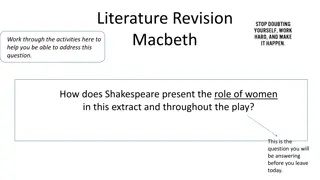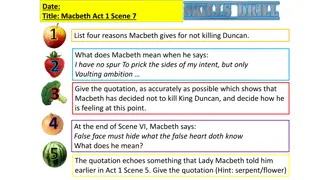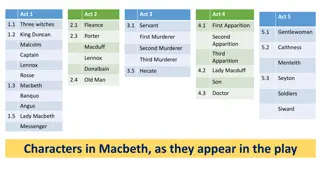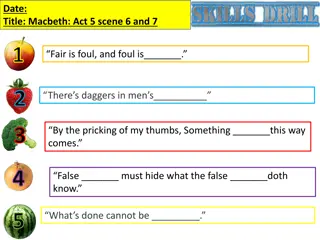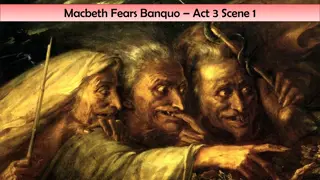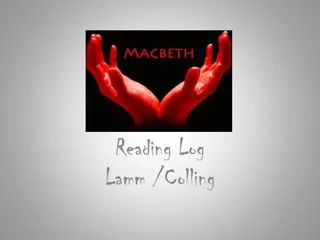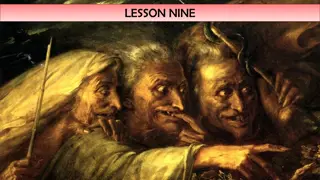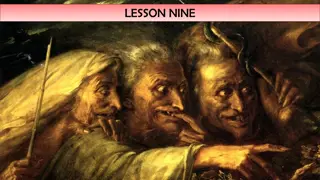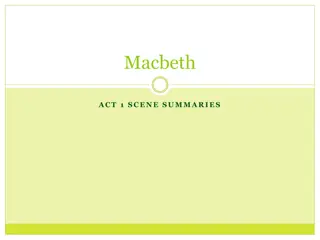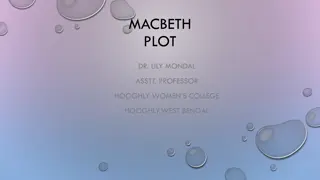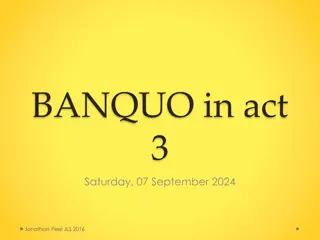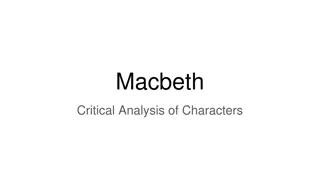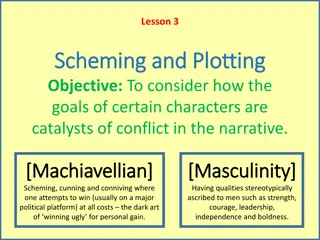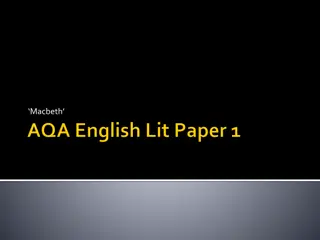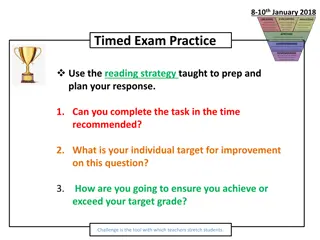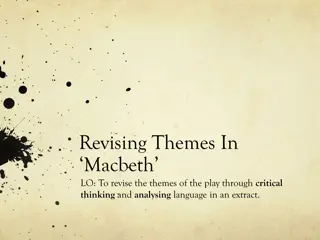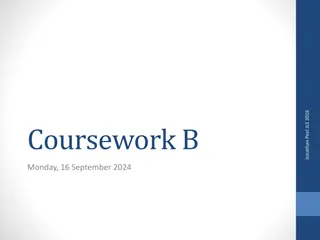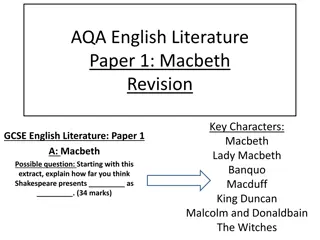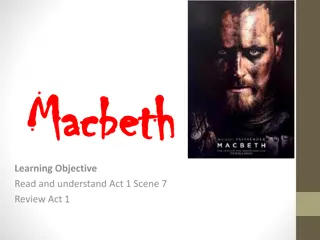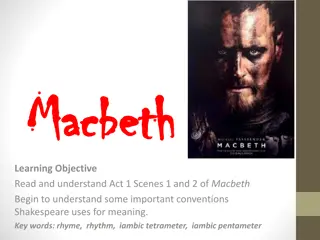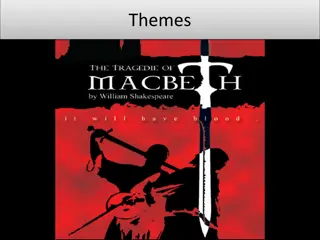Exploring Shakespeare's Macbeth: Act 2 Scene 4 Analysis
This analysis delves into Act 2 Scene 4 of Shakespeare's Macbeth, covering themes of treason, divine right of kings, and the role of the Porter. It explores the unnatural events surrounding Duncan's murder, the symbolic significance of animals, and the tension-building elements in the scene. The use of the Old Man character and how nature reflects the chaos in the story are also discussed.
Download Presentation

Please find below an Image/Link to download the presentation.
The content on the website is provided AS IS for your information and personal use only. It may not be sold, licensed, or shared on other websites without obtaining consent from the author. Download presentation by click this link. If you encounter any issues during the download, it is possible that the publisher has removed the file from their server.
E N D
Presentation Transcript
Date: Title: Macbeth: Act 2 Scene 4 1 What is treason and what were the penalties for being found guilty of it in Shakespearean times? 2 What is the purpose of the Porter? 3 What is the divine right of kings and how is it relevant in Act 2? 4 Who says, Confusion now hath made his masterpiece ? 5 Where to Malcolm and Donaldbain flee to respectively?
Pathetic Fallacy (Noun) NOUN the attribution of human feelings and responses to inanimate things or animals, especially in art and literature. John Ruskin coined the term in Volume 3 of his work, Modern Painters (1856). 1. Copy down the definition of the noun pathetic fallacy 2. Transform it into an image to help you remember it. 3. Use it: Write one sentence using the words pathetic fallacy
Read Act 2.4 as a class: 1. What unnatural events are described as occurring on the night of Duncan s murder? 2. What animals are discussed and what do they symbolise? (EG; doves might symbolise peace) 3. Why has Duncan s murder caused chaos in the natural world? EXTENSION: Which of these is the MOST EFFECTIVE at building tension for the audience?
1) Why has Shakespeare used the character of an old man in this scene? 2) What does line 5 Thou seest the heavens, as troubled with man s act/Threatens his bloody stage mean? 3) What are the 2 unnatural events that happened with animals the night of Duncan s death? 4) What does suborn d mean? What is MacDuff suggesting about the guards? 5) What device is used in line 41? What is the Old Man s message?
What do you think the purpose of this scene is? Write a paragraph for each of the headings below Consider: The development of tension Information given to the audience The importance nature/weather Why does Shakespeare use the character of the Old Man?
What knowledge have you learnt today? What skills have you learnt/developed today? How has your previous learning helped you in today s lesson?



